Trust Accounting Year-End Checklist for Short-Term Rental Property Managers
As year-end approaches, Short-Term Rental property managers practicing trust accounting face critical financial workflows that must be wrapped up cleanly. This article outlines the key steps to take now, before December, to close your books accurately, stay compliant, and set up a smooth start to the new year. From reconciliations and liability cleanups to audit readiness and owner communication, this guide helps you finish strong.
November 11, 2025
Corey
.png)
Trust Accounting Year-End Checklist for Short-Term Rental Property Managers
Why Year-End is Mission Critical in STR Trust Accounting
For Short-Term Rental (STR) property managers, the end of the year isn’t just another calendar milestone... it’s a high-stakes checkpoint for financial integrity and regulatory compliance. If your business manages owner funds via trust accounting, the closing process has significant implications for meeting state-mandated requirements (such as those enforced by the North Carolina Real Estate Commission), safeguarding client relationships, and positioning your management portfolio for growth or future sale.
Deferred cleanup leads to risk: unresolved liabilities, misallocated funds, unreconciled transactions, and unsent owner statements can carry compliance consequences, tax headaches, and loss of owner trust. Most regulatory bodies require that trust accounts remain auditable and balanced at all times. Year-end is your opportunity to systematically address any discrepancies and ensure your books withstand both internal and external scrutiny.
This proactive checklist, built for mid-November execution, walks you through the processes every STR property manager should complete before the December crunch. Don’t wait for deadlines. Get ahead now.
1. Reconcile All Bank & Booking Transactions
Start by confirming that every dollar moving in and out of your trust account is accounted for in your internal ledgers. This means matching bank statements to your property management system (PMS) or trust accounting platform. Pay specific attention to:
- Ensuring bank balances match trust ledgers and sub-ledgers for every owner and property.
- Allocating Online Travel Agency (OTA) payouts, such as Airbnb or Vrbo, fully and accurately across properties and dates. Automated imports in tools like Clearing can help minimize missed income.
- Using daily or weekly reconciliations in your trust accounting software to catch discrepancies before they become month-end issues.
By addressing these reconciling actions now, you reduce the risk of last-minute surprises or owner questions when annual statements are delivered.
2. Clean Up Liabilities: Don’t Let Unresolved Items Carry Over
One of the most overlooked year-end actions is cleaning up your liability accounts. Outstanding guest deposits, owner advances, security holds, and uncashed owner payments should be meticulously reviewed. Ask yourself:
- Are there deposits or advances that should have cleared but remain on your books?
- Do your security deposit liabilities reflect only current, open bookings? Or are old holds stuck in the account?
- Have owner payables been disbursed as scheduled, and does each outstanding liability have matching backup?
Lingering old balances can trigger compliance violations and complicate audits. Proactively resolve or reclassify items and document your actions for clear year-over-year continuity.
3. Confirm Owner Payout Accuracy and Statement Integrity
This is your window to catch and correct misclassifications in owner statements before they become year-end disputes or audit findings. Pull year-to-date (YTD) statements for each owner and:
- Ensure management fees, OTA commissions, pass-through expenses, and income are properly categorized.
- Compare statement templates and account mappings for consistency across your owner base. Look for one-off adjustments or custom setups that may cause confusion or delay in owner reporting.
- Flag and address inconsistencies immediately, documenting any corrections ahead of final statement issuance.
Not only does this maintain regulatory compliance, it also strengthens client trust by demonstrating attention to detail and a commitment to transparent reporting.
4. Run Audit Checks: Be Audit-Ready, Not Audited
With your records up to date, simulate an end-of-year audit before one is mandated. Start with a 3-way reconciliation - verify that the trust account balance, internal ledger totals, and per-owner/property sub-ledgers match exactly. Use automated tools within your trust accounting software or export relevant data for manual verification if needed.
Consider assembling a mock audit packet, which should include:
- Bank statements for all trust accounts
- Reconciliation worksheets or reports
- Owner/sub-ledger reports
- A register of all open liabilities
This not only reduces your stress if a real audit occurs, but is also an excellent selling point for owners or prospective buyers seeking financial stability.
5. Prep for 1099s and Tax Season Early
Compliance with IRS regulations is another pillar of year-end success. Begin collecting or confirming W9s for owners and all relevant vendors, contractors, or service providers now. Waiting until January virtually guarantees missing information and rushed filings.
Audit your reimbursable expenses to clearly flag vendor transactions requiring 1099 reporting. Spending time on categorization now can save hours of review during tax prep crunch time. Remember, payments made from your trust account to independent contractors often require filings.
By building this workflow into your year-end routine, you not only minimize IRS risk, you further reinforce your business’s professionalism and attention to compliance detail.
6. Communicate Clearly and Proactively with Owners
Transparency is the cornerstone of long-term owner relationships. Notify each owner that a year-end close process is underway. Send a preliminary statement previewing their annual income, deductions, and any outstanding issues that could affect final numbers.
Setting expectations around year-end timing, the process for reporting corrections, and the anticipated date for 1099 delivery avoids confusion and builds confidence. If you’ve cleaned up liabilities or reclassified transactions, explain these actions proactively. Owners are far more likely to remain satisfied (and advocate for your business) when guided through this process with clarity and professionalism.
7. Review Your Tech Stack for 2026: Optimize for Next Year’s Close
As your books near closure, reflect on whether your accounting tools and tech stack supported - or hindered - a seamless process. Did your PMS, trust accounting software, or reconciliation tools efficiently handle bulk OTA payouts, expense allocation, and reporting? If tech limitations caused reconciliation delays or manual workarounds, it may be time to consider a migration ahead of the new year.
Platforms like Clearing are specifically built for STR trust accounting and automate much of the grunt work, providing integrated financial visibility regardless of the underlying PMS. This is the ideal moment to evaluate your options... don't let outdated processes be your bottleneck next year.
Trust Compliance is Non-Negotiable, and it's a Strategic Advantage
State-level regulations make trust accounting a requirement in many states, not just a best practice, for many STR property managers. A clean, consistent year-end close brings more than peace of mind; it’s a business advantage that signals professionalism to potential owners and buyers, streamlines audits, and enables true scalability.
The best firms view year-end workflows as an investment in their reputation and operational resilience. Proactive cleanup, robust owner communications, and tech-forward process evaluation will not only meet today’s standards but also position your business for a profitable, low-risk 2026.
Enter the New Year with Automation and Accuracy: Book a Demo with Clearing
Ready to make your trust accounting closing process truly seamless?
Don’t let year-end pressure or compliance complexity slow you down. Schedule a personalized demo with Clearing and see how automation, centralized controls, and audit-ready reporting can transform your STR accounting workflows for the year ahead.
Clearing is a Financial Technology Company, not a bank.




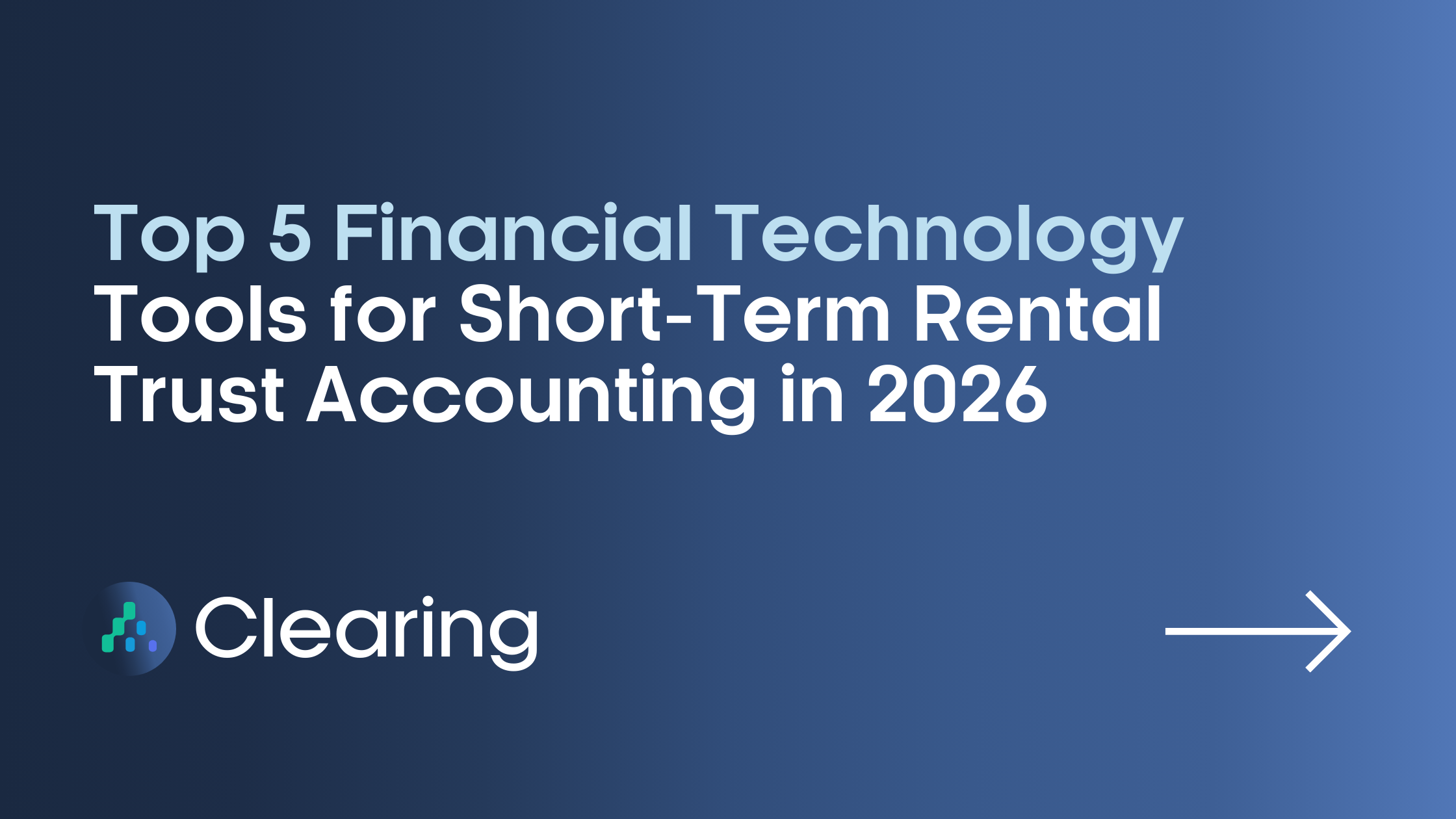

.png)
.png)
.png)
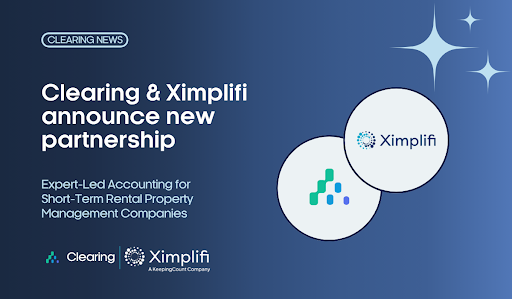
.png)
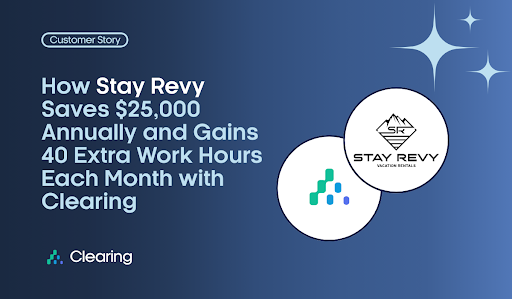
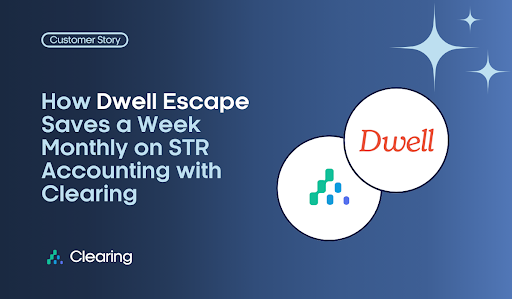
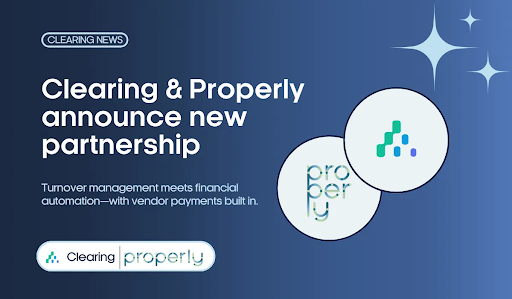
.png)
.png)
.png)
%20(1).png)
%20(1).png)
%20(1).png)
.png)
%20(2).png)
%20(1).png)
%20(1).png)
.png)

.png)
.png)
.png)
%20(1).png)
.png)
.png)
.png)
.png)
.png)
.png)
.png)
%20(1).png)
.png)
.png)
.png)
%20(1).png)
%20(1).png)
%20(1).png)








.jpg)
%20(1).png)
%20(1).png)
%20(2).png)
%20(1).png)

%20(1).png)
%20(1).png)
%20(1).png)



%20(1).png)
%20(1).png)
%20(1).png)
%20(1).png)
%20(1).png)


%20(1).png)
%20(1).png)
%20(1).png)
%20(2).png)
%20(2).png)



%20(2).png)


%20(2).png)
%20(1).png)
.png)


%20(2).png)
%20(2).png)

.jpg)
.png)
.png)
.png)



.png)

.png)